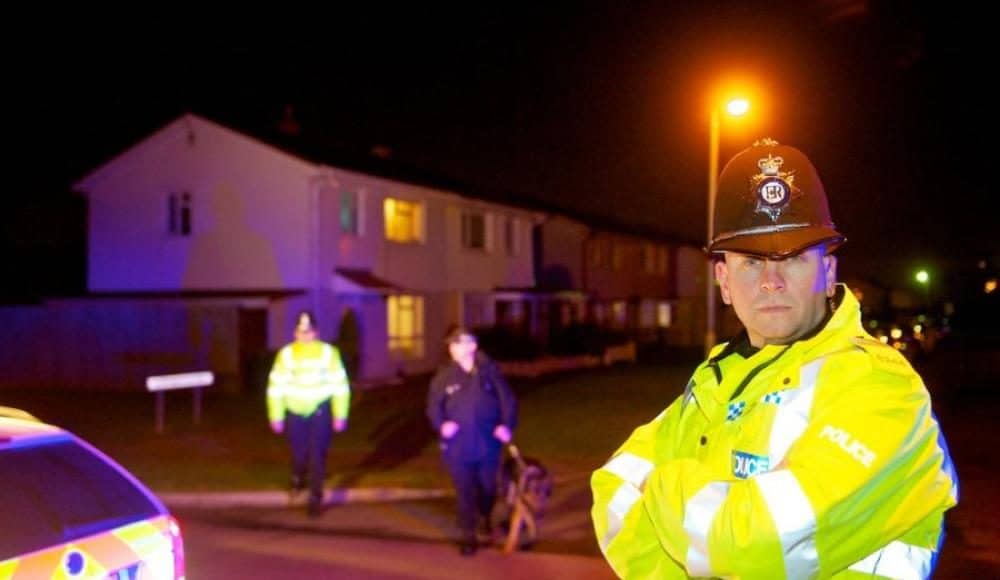For seven months a BBC reporter went undercover at Charing Cross Metropolitan Police station. The resulting hour-long Panorama programme released on 1 October reveals a police force dripping in misogyny, racism and islamophobia and a culture of gratuitous violence. Far from being a few ‘bad apples’, this toxic culture is baked into everything these police officers do and hence inseparable from the police themselves.
In the episode, one officer is shown to be a known sex pest who often talks about masturbation to his female colleagues during work. He leaves his desk at one point to ‘supervise’ a search of an arrested woman dressed in a fancy dress police uniform, saying, ‘I paid money to go to clubs and see women dressed like this’. He then dismisses the words of a pregnant domestic violence survivor whose partner has allegedly kicked her in the stomach; this partner is then released from custody. In discussion with another police officer, he waves away the woman’s accusations, saying: ‘That’s what she says’. Elsewhere, another officer talks about how immigrants are ‘scum’ and how ‘you should either shoot them or deport them’. Another says, ‘Islam is a serious problem’ and brags about how another officer assaulted a detainee by repeatedly stamping on his leg.
In the immediate aftermath of the programme being aired, the police issued the usual empty apologies. The Metropolitan Police commissioner said, ‘The behaviour depicted in this programme is reprehensible and completely unacceptable’, while the National Police Chiefs’ Council claimed it was ‘working hard to build a culture based on integrity and trust’. This essentially means they will tweak a couple of policies, get rid of a few police officers and repeat the same empty promises about inclusivity and tolerance. Nothing fundamental about policing will be changed.
When similar complaints were raised in 2021, in response to the rape and murder of Sarah Everard by serving police officer Wayne Couzens, and in 2023, when Baroness Casey’s review of the Metropolitan Police found it to be institutionally racist, sexist and homophobic, there were promises to do better and ‘reform’ policing. It was a shock to no one that two years on, the same problems persist. Recommendations were made, apologies were dished out, and other than the dismissal of a handful of officers, things went on as normal. This time around, as of 7 November, five officers have been sacked and another three are set to face disciplinary proceedings
In the aftermath of this undercover investigation, over 300 women came forward to the BBC, sharing their stories of police misogyny and racism. One woman was told to ‘grow a pair’ after she reported being punched in the face by her partner; another woman, when reporting her rape, got told by a police officer that ‘nobody gets raped more than once’. The police culture around investigating rape is so notoriously bad that even female police officers, when giving training on how to handle rape cases, would admit that they themselves would not report it if it happened to them. What this makes clear is that this is not a problem just with Charing Cross or solely the Metropolitan Police – this is institutional, widespread and consistent.
We see even within the documentary what effect the earlier ‘reforms’ had; racist officers, for example, were not driven out, they were simply compelled to only voice their most blatantly racist views, when in ‘trusted’ company. Throughout the documentary, officers lead the reporter away from the prying eyes of cameras and microphones in the station to talk about the violence they or others have meted out to arrestees. In pubs, after hours, they caution one another not to talk about some topics with the ‘new guy’, together with banter about making sure no one is wearing a wire, as ‘we’d lose our jobs if someone heard us’. They know what they’re saying is abhorrent and unacceptable, and they know to be cautious about what they say, where they say it and who they say it to. They are simply being trained to hide their bigotry better. This caution does not extend, however, to the police officers’ misogyny, which is displayed freely with no regard for who is listening or who might report them; while female officers at the station express their feeling that there is no point reporting it and that they simply have to let the comments wash over them.
The Panorama programme confirms what the Casey Report showed three years ago and what women, black people and other oppressed groups have always known, that the British police are irremediably sexist, racist and rotten to the core.
Maya Bula




